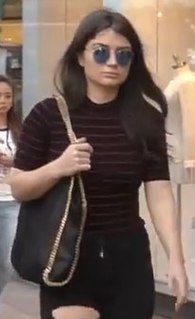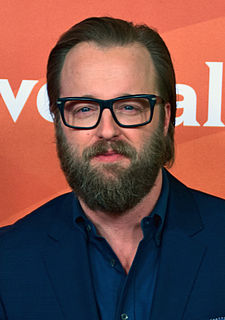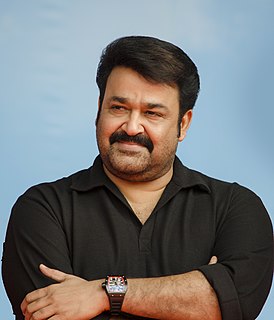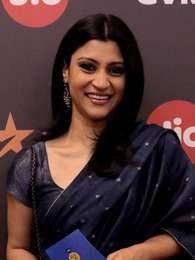A Quote by Greta Gerwig
I wanted to be a playwright in college. That's what I was interested in and that's what I was moving toward, and then I had the lucky accident of falling in love with film. I was 19 or 20 that I realized films are made by people. Shooting digitally became cheaper and better. You couldn't make something that looked like a Hollywood film, but you could make something through which you could work out ideas. I was acting, but I was also conceiving the plots and operating the camera when I wasn't onscreen. I got very unvain about film acting, and it became a sort of graduate school for me.
Quote Topics
About
Accident
Acting
Also
Became
Better
Camera
Cheaper
College
Conceiving
Could
Falling
Falling In Love
Film
Film Acting
Films
Got
Graduate
Graduate School
Had
Hollywood
I Realized
Ideas
Interested
Like
Looked
Love
Lucky
Made
Make
Me
Moving
Onscreen
Operating
Out
People
Playwright
Plots
Realized
School
Shooting
Something
Sort
Then
Through
Toward
Very
Wanted
Which
Work
Work Out
Related Quotes
My tutor was a film director on the side, and she introduced me to film. She then put me in one of her short films, and it came out of that. That's when I fell in love with the process of making a film. After that, I was about 15 and I was like, "This is what I've gotta do." So, I started taking acting lessons, and then I applied to college to do acting. I got an agent, and it all just happened.
I left film because I felt that photography was my art. It was something I could do on my own, whereas film was so collaborative. I thought as a photographer I could make something that was artistic and that was mine, and I liked that. And it wasn't until I got back into film and I have very small crews and I could do very tiny filmmaking that wasn't 100 people that I still felt that I was making something artistic as a filmmaker. So, you know, I'm an artist, and whether it's photography or film, I want my voice to be there and I think my voice is very strong in this film.
I'm not trying to be self-serving, but you know, you get to Hollywood, and if you want to make something big and loud and dumb, it's pretty easy. It's very hard to go down there and make a film like 'Sideways,' which I thought was a great film. They don't want to make films like that anymore, even though that film was very successful.
I wanted to be a car mechanic and I wanted to race cars and the idea of trying to make something out of my life wasn't really a priority. But the accident allowed me to apply myself at school. I got great grades. Eventually I got very excited about anthropology and about social sciences and psychology, and I was able to push my photography even further and eventually discovered film and film schools.
When I started I had no knowledge of films whatsoever. I was an engineering major at Stanford. And I found out as a senior that they had two film critics on the Stanford Daily, and they got free passes to all the theaters in Palo Alto. So I thought, I'll do that, and I became a film critic. And then I became interested in films. But I had no time to study anything in that area because I was a senior, just finishing up as engineering.
There's something that happens where you go, if you're lucky, goodness me, from film to another film to another film. And you can sort of feel that if you step off that treadmill, it might all go horribly wrong and you might never be employed again, you know. And I suddenly thought that that's not necessarily the case. And I also thought we make drama as actors about people in the world and that if you are on that treadmill, you start making films about other films.
I don't think all films should necessarily look like they do on digital video. I think it cheats the audience, at some point. If you try to make an epic and you shoot it digitally, that doesn't make much sense. I think there's a certain kind of film that could be a "digital film." But it shouldn't be interchangeable with other films. It should be something more than just a capture medium. It should be a different form altogether, something new.
When I was studying photography, I became interested in conflict photojournalism, and that got me interested in lighting. Then I realized there was this amazing thing called cinematography where you could kind of tell more complete stories photographing for film. So I ended up going to AFI grad school for that.



































